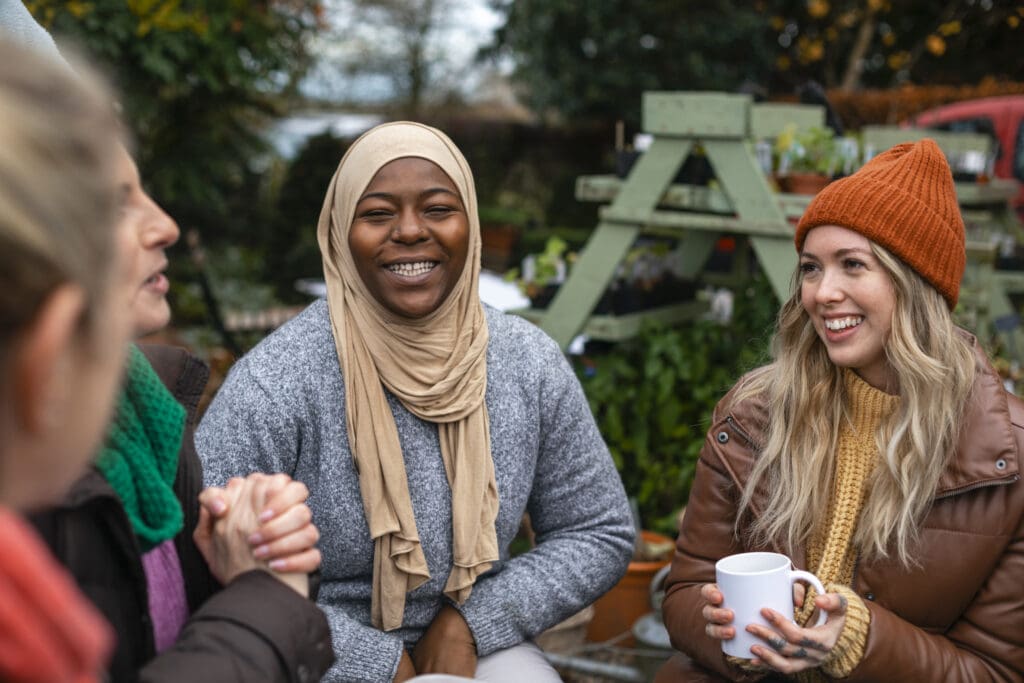We found Maryam in the back foyer of our church, crying. She had left our ladies ESL conversation class abruptly. After some time, we went to see where she was and what was wrong. All she would tell us is “I am ashamed! I am ashamed!”
If I had understood the realities of shame and honour, I might have known how to help her rejoin us. Maybe I could have shared about the honour God longs to give her and others like her!
Have you experienced how shame and honour affect the lives of newcomers to Canada too?
What We Know About Honour
To many people in North America, shame and honour are archaic and irrelevant. We use phrases like “your honour” in courtrooms or in wedding vows, but how often does honour come up in your everyday speech? You might have heard ‘shame on you’ from an elderly relative or strict teacher in your childhood. Are they relevant words anymore?
The secret is that shame and honour matter. They are woven into the fabric of the entire Bible, and in relationship with God. But until we learn to see the value of honour and the feel the weight of shame, it will continue to be a blind spot for many of us. Ultimately, this keeps us from truly loving our neighbour.
Why Did Maryam Hide?
We tried to create a safe space for women from all over the world to learn and practice English, but often their actions confused us. It took us a while to see exactly what caused Maryam’s distress. That morning’s topic had been ‘family’. We learned her husband had recently left her and their children for another woman, and she was now alone in a strange country. Because of this, she felt her shame was too great to participate in our group, and there was nowhere for her to belong.
I heard the words “I am ashamed” more than once as a volunteered with this church outreach program. Annie felt ashamed that her English level was much lower than other woman from her country. Irena felt shame about her pronunciation. Fatima had so many questions but could not ask them in front of others. As we learned more about the participants, we sought ways to lessen feelings of shame and preserve honour instead.
Imagine how shameful it would feel to become a beginner again. These women had advanced degrees and powerful positions back home, and now struggled to form sentences about the weather. So, instead, we celebrated those who came with lower English levels, and the courage of those who made attempts to speak. We corrected privately, we changed how we asked questions and celebrated collective wins.
Because we saw how critical honour was in these women’s lives, we worked to become a place where they could find it.
Honour is Everything
To most of the non-western world, honour is everything. It is central to their identity, but it can be quickly lost. To have honour means someone is successfully living by the unwritten code that their community requires. Another way to think of this is that we receive honour from the community by honouring the importance of the community.
All of this goes so much deeper than ideas of popularity, status, fame and approval: honour can be critical to survival in many places. Ability to work, to buy and sell, to live in a home with family all require it. Honour-based violence can even occur when a family attempts to preserve the honour of the group by removing one member who they deem shameful. Violence restores the honour of the group, allowing for continued survival but there is no appeal or reversal for the shamed. Sometimes it even results in loss of life. Honour matters for some to simply live.
Honour for All Canadians
New Canadians are often seeking honour and community, so to love them we must know what they are looking for. To many, honour and saving face is the glue of all relationships.
But understanding honour is important for all of us because shame-honour culture is on the rise in many communities. The Millennial generation is one of the most shame-prone in recent history. When we experience the dreadful feeling of unworthiness, of being ‘cancelled’ for not behaving by group expectations, of somehow missing something that everyone else has figured out, we are experiencing shame.
How to Honour Others
What I’ve learned from newcomers to Canada is that honouring others is a beautiful way to live. It’s a matter of watching what might cause someone to gain public reputation in any situation and doing that thing. It might be a compliment, a gift, or an invitation. Practically, there are many ways to honour others:
- Sending an invitation to our home for a meal
- Saying someone’s name correctly
- giving a guest a comfortable place to sit
- acknowledging elders
- helping someone to navigate difficulties of language or government systems
- showing modesty and humility
- using indirect language when correcting
Honour can either be achieved through our own efforts (by being the best at something) or received from someone else (by association with someone who has honour or recognition from them). Honour is contagious! When we have it, those around us have it too! It only costs us our effort — and it’s lifechanging!
Honour and the Gospel
As Christians we should know that God longs to give all of his children the honour of belonging to his Kingdom, of having their shame removed, and of receiving glory from him. The teachings of the Bible are that we are to show honour to everyone.
This is what I wish Maryam had known back when I saw her in the church foyer.
Honour matters so much to God that Jesus died to remove both our guilt and our shame and return us to a place of honour with him. Jesus achieved greater honour before God and people than anyone ever has before, and God ascribed to Jesus greater honour than any other name. Being a follower of Jesus means we receive the honour of our leader. We partake in the glory to be revealed, we receive a crown of glory, we receive a name and a citizenship greater than all others. Nothing that happens to us, nothing we do, is too shameful for us to be accepted. And because we practice grace like God does, she was acceptable to us, no matter her shame.
Honour and its restoration is at the heart of who God created us to be, and what is found (or restored) in his salvation. It’s beautiful, dignifying and joyful.
Are you ready to love (and honour) your neighbour?




